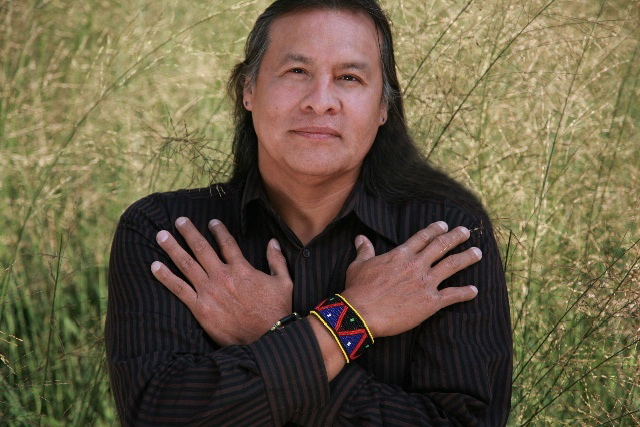This Week's Program: Wednesday, May 2, 2012
- Home
- This Week's Program: Wednesday, May 2, 2012
Loading...

SKYWAVES: Indigenous News Worldwide STORY ONE: Source: corpwatch.org In Asia An oil spill in northern Russia from a joint venture between Lukoil and Bashneft has damaged fragile reindeer pastures in yet another blow to the indigenous Nenets people. Environmental activists have warned about such disasters for decades but few precautions have been taken by the oil companies. Lukoil, which is now Russia’s largest oil company, and Bashneft are currently drilling for oil in the Trebs oil field in the Nenets Autonomous District which is estimated to hold 153 million tons of oil. Vladimir Bezumov, chief of the local office of the Russian Environmental Agency, estimates that some 2,000 tons of oil gushed out of an exploratory well in the oil field this past weekend damaging as much as 14,000 square meters of land. Oil exploration started in the region in the 1960s and expanded after the collapse of the Soviet Union. Activists warned that environmental problems were bound to get worse. Gail Osherenko, a Vermont-based anthropologist who works with the Nenets peoples, said “that the idea oil drilling in the region would have only minimal impact was "wishful thinking." And Russian and indigenous groups sent out an appeal in 1996 to ask the public to lobby the World Bank not to finance projects in the region. The warnings were mostly ignored. An investigation by Nataliya Vasilyeva in late 2011 described some of the damage caused by the estimated half a million tons of oil spilled every year that make their way into the Arctic ocean, roughly two-thirds of the quantity of oil spilled in the Deepwater Horizon in the Gulf of Mexico. “On the bright yellow tundra outside this oil town near the Arctic Circle, a pitch-black pool of crude stretches toward the horizon. The source: a decommissioned well whose rusty screws ooze with oil, viscous like jam,” she wrote. The indigenous communities say their traditional way of life has been devastated by the oil industry. “There is no future for us. People are dying. If oil companies behaved correctly, they would ask us, where drilling is possible and where not, which river is spawning, where fish comes for winter cabin. Fish comes to this bog in the autumn. And now all the rivers are blocked here, and fish has nowhere to go,” Valdimir Vello, a reindeer herder told Greenpeace recently for a report titled “Is there a life after oil?” “I think that there is no future. If the oil companies leave us, we can manage to save something here, to recover this place.” Yuri Trutnev, Russia’s minister for natural resources and ecology threatened to sue Lukoil rival, Anglo-Russian oil producer TNK-BP (owned jointly by British Petroleum) for numerous oil spills in Siberia. Trutnev said the company has 784 accidents last year. The drilling ventures are hugely profitable so they are unlikely to be stopped but there is more than enough money to minimize some of the worst impacts. STORY TWO: In South America Chiquita, the global banana producer, was ordered this week to face a federal court over their role in paying off right wing death squads in Colombia. Villagers allege that the death squads used “random and targeted violence in exchange for financial assistance and access to Chiquita’s private port for arms and drug smuggling,” according to a lawsuit filed on their behalf by EarthRights International and Cohen Milstein. The lawsuit, which is based on the Alien Torts Claims Act (ATCA), is likely to go forward, even though the statute is being considered by the U.S. Supreme Court in a case against Royal Dutch Petroleum in Nigeria that may limit the use of the act against corporations under U.S. law. (see U.S. Supreme Court: Can Multinationals Be Sued for Crimes?) The 223 year old ATCA allows foreigners to sue in U.S. courts for violations the "law of nations.” Cincinnati-based Chiquita has been growing bananas in Colombia since 1899. For over four decades these operations have been under attack – first by the Revolutionary Armed Forces of Colombia (FARC), a left-wing guerrilla group, and then by Defense Forces of Columbia (AUC), a paramilitary group created by ranchers and drug traffickers. Court documents show that Chiquita executives paid off both groups. FARC was paid between $20,000 and $100,000 a month. Chiquita has also admitted to making over 100 payments totaling $1.7 million to the AUC or affiliated organizations over seven years. The villagers have accused the AUC of a number of human rights abuses including torturing and killing at least 40 people in the town of Mapiripan in July 1997 and then killing 36 people and torturing dozens in a February 2000 operation. Court documents also show that a shipment of 3,000 AK-47 assault rifles and 5 million rounds of ammunition from Nicaragua in 2001 was invoiced to Chiquita. The armaments were delivered to Chiquita warehouses and then trucked to the AUC by Chiquita, according to the legal papers. Chiquita, which was represented by Eric Holder, admitted the payments and paid a fine of $25 million. (Holder has since been appointed U.S. attorney general in 2009 by Barack Obama) In a ruling issued earlier this week, U.S. federal Judge Kenneth Marra in Florida ruled that the charges of “cruel, inhuman, or degrading treatment; violation of the rights to life, liberty and security of person and peaceful assembly and association; and consistent pattern of gross violations of human rights” would be heard in court. “We're thrilled that the judge has recognized that our claims against Chiquita for violations of Colombian law can proceed in this lawsuit,” added Marco Simons of EarthRights in a press statement. “The plaintiffs have been waiting for justice for a decade and more, and this is one more step in the right direction for them to finally have their day in court.” STORY THREE: SOURCE: www.telegraph.co.uk/ In South America Bolivian President Evo Morales ordered his military to seize the local assets of Spanish energy company Red Electrica. Mr Morales said the expropriation of Transporter of Electricity (TDE), which runs most of Bolivia's power grid, was "in honour of all Bolivian people who have struggled to recuperate our natural resources and basic services". He timed the seizure for May Day. TDE is 99.94pc owned by Spain's Red Electrica and, according to El Pais, accounts for about 1.5pc of the company's business. Accusing Red Electrica of underinvestment in TDE, Mr Morales said: "We do this... for the benefit of the Bolivian people." The nationalisation comes just two weeks after Argentine President Cristina de Kirchner announced the expropriation of Spanish company Repsol's stake in oil group YPF, also citing underinvestment. Mr Morales's move could further spook European investors already wary of resource nationalism in left-wing regimes in South America. He has past form in such May Day seizures. Two years ago he nationalised four power companies including Rurelec, an Aim-listed British company. Rurelec is still attempting to gain compensation for the assets and is pursuing a $142.3m (£87.7m) claim against Bolivia in the Hague.
“News sources today include The Telegraph and Corp Watch”.
“Skywaves is produced in the studios of WBAI NY and in alliance with First Voices Indigenous Radio and First Peoples World Wide, the only direct funder to Indigenous communities globally. Go to FirstPeoplesworldwide.org or Firstvoicesindigenousradio.org to download today’s featured stories. Email us at Skywavesnews@gmail.com Thanks for joining us.”


